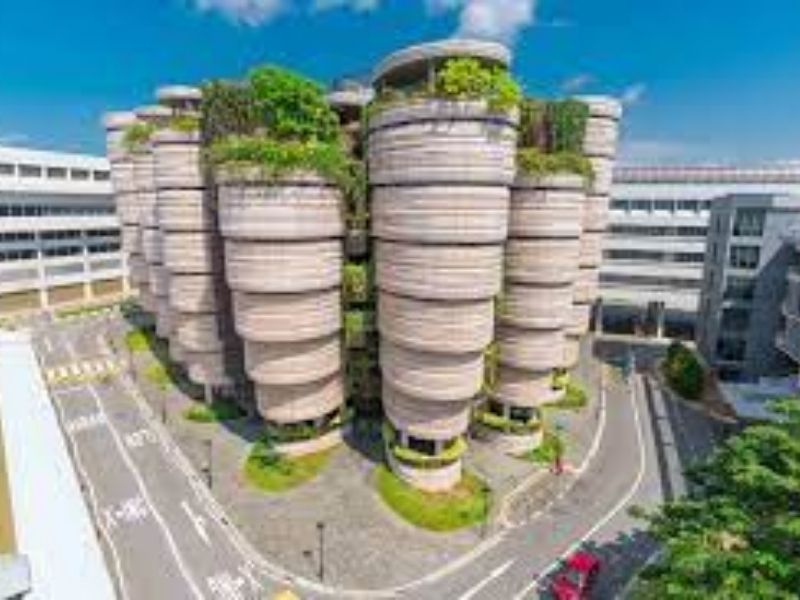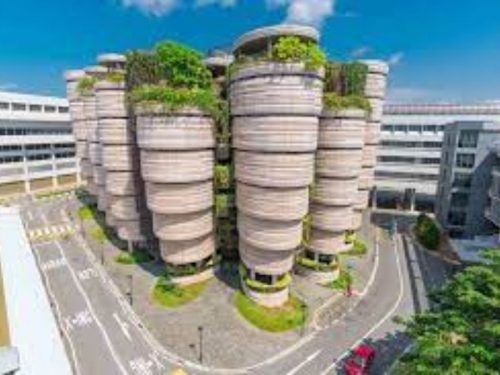No products in the cart.
Nanyang Technological University
 Nanyang Technological University, Singapore is ranked #1 worldwide in the QS Top 50 under 50 Rankings 2014, a league table which rates and ranks universities under 50 years of age Summiya Yasmeen
Nanyang Technological University, Singapore is ranked #1 worldwide in the QS Top 50 under 50 Rankings 2014, a league table which rates and ranks universities under 50 years of age Summiya Yasmeen
Chartered in 1991 by the government of the Republic of Singapore, the publicly-funded Nanyang Technological University (NTU) has rapidly evolved into one of Asia’s top-ranked higher education institutions. In the authoritative QS World University Rankings 2014, NTU is ranked #39 ” up 35 notches in four consecutive years ” and in the QS Asian University Rankings it™s ranked #4. In October 2014, NTU climbed 15 places to be ranked #61 in Times Higher Education™s World University Rankings. This 24-year-old varsity is also ranked #1 worldwide in the QS Top 50 Under 50 Rankings 2014, a league table which rates and ranks universities under 50 years of age.
NTU™s six schools ” engineering; science; business; humanities, arts, and social sciences; medicine and inter-disciplinary graduate school ” offer undergraduate and postgraduate programmes to 33,500 students mentored by 4,300 highly-qualified and well-remunerated faculty. In particular the university’s engineering and business schools are highly reputed for offering cutting-edge study programmes. For instance in the US News & World Report’s global ranking of engineering schools (2014), NTU’s engineering college is ranked #5 worldwide and #2 in Asia, while the Nanyang Business School is ranked #66 worldwide and #4 in Asia by the Economist Intelligence Unit (2014).
NTU traces its origins to the Nanyang Technological Institute (NTI) promoted in 1981 to train Singapore’s engineers. In 1991, NTI merged with the National Institute of Education to form the Nanyang Technological University. In 2013, NTU promoted its Lee Kong Chian School of Medicine in association with Imperial College, London.
Singapore. A globally renowned national development success story, the island Republic of Singapore (pop. 5.3 million) has miraculously outgrown its third world status within half a century after independence from British rule, to emerge as the business and financial nerve centre of South-east Asia and the world. With most international companies and corporates well represented here, this entrepot nation offers an excellent business environment supported by state-of-the-art public transport and telecommunications infrastructure.
The centrepiece of its cultural calendar is the Festival of Arts, a month-long annual event traditionally held in June. Moreover, the island republic has a rich nightlife with discos, bars, pubs, karaoke lounges and nightclubs. And for sports enthusiasts, indoor and outdoor sports facilities are available in community and private clubs and facilities of the Singapore Sports Council. For nature lovers, Singapore hosts well-developed nature reserves and public gardens.
Singapore’s climate is tropical. Temperatures range between 22°-33°C through the year. English is the language of administration, business, and technology.
Campus facilities. NTU’s main 200-hectare Yunnan Garden campus is the largest university campus on the island and houses Singapore’s largest students’ residential community. The varsity’s well-stocked library offers over 600,000 print volumes and e-resources comprising 36,000 unique e-journals, 147,000 e-books, and over 16,000 theses, student projects, research reports, etc.
Indoor sports facilities include two fitness gyms, four activity rooms, squash courts and three multi-purpose sports halls featuring badminton, table tennis, volleyball, floorball, basketball and martial arts play and practice areas. Outdoor sports facilities include an eight-lane 400-metre athletics track, synthetic hockey turf, archery range, cricket practice cage, three basketball, eight tennis and five multipurpose courts, and swimming and diving pools. Other campus facilities include restaurants, a supermarket, bookstore and medical centre.
NTU also administers the NTU@one-north campus sited next to the Biopolis, Singapore’s biomedical research hub, and Fusionopolis, a new epicentre of engineering and physical sciences. NTU@one-north houses the university’s Centre for Continuing Education, Confucius Institute and NTU Alumni clubhouse. A third campus in downtown Novena houses the Lee Kong Chian School of Medicine.
Admission. Admission into NTU’s undergraduate programmes is competitive and merit-based. The medium of instruction is English and foreign students are required to have studied in the English medium. The eligibility requirement for admission into undergrad study programmes is successful completion of class XII (œat least 90 percent in all subjects including English but excluding the other languages). Submission of TOEFL, IELTS and/or SAT scores is optional. A subsidised tuition fee is optionally available to international students, but with a stipulation: recipients are contractually required to work for a Singapore-based company for three years after graduation. For admission into the university’s postgrad programmes, a first class bachelor’s degree is mandatory.
Applications need to be submitted online (www.ntu.edu.sg) before April 1 for term beginning in September. The application fee is SGD 30 (Rs.1,399). For further information, contact Office of Admissions and Financial Aid, Nanyang Technological University, Student Services Centre, Level 3, 42 Nanyang Avenue, Singapore 639815. Ph: + 65 6790 5806; e-mail: adm_intnl@ntu.edu.sg; website: www.ntu.edu.sg.
Accommodation. The university’s 18 halls of residence accommodate 10,400 international undergrad students, with every freshman guaranteed a hostel room. All halls are co-ed and offer fully-furnished single and double occupancy rooms. Shared facilities include lounges, air-conditioned reading rooms, pantries, and laundry rooms. On-campus graduate housing is offered to over 1,300 students.
Degree programmes. NTU’s six schools offer a diverse range of undergraduate and postgraduate programmes (see box).
SCHOLASTIC OPTIONS AT NTU
Nanyang Technological University offers a choice of undergraduate, graduate and doctoral programmes. They include:
College of Engineering. Schools of chemical and biomedical engineering; civil and environmental engineering; computer engineering; electrical and electronic engineering; materials science and engineering; mechanical and aerospace engineering
Nanyang Business School. MBA, honours degree programmes in accountancy and business
College of Humanities, Arts, & Social Sciences. Schools of art, design and media; humanities and social sciences; Wee Kim Wee School of Communication and Information
College of Science. Schools of biological sciences; physical and mathematical sciences; the Asian School of the Environment
Lee Kong Chian School of Medicine. MBBS degree awarded jointly by NTU and Imperial College, London
Interdisciplinary Graduate School. Sustainable earth, new media and future healthcare
The National Institute of Education and S. Rajaratnam School of International Studies also offer graduate and doctoral programmes.
Tuition fees (per year): S$29,110-33,570
Living expenses: S$8,250-10,080 NB: S$=Rs. 47














Add comment